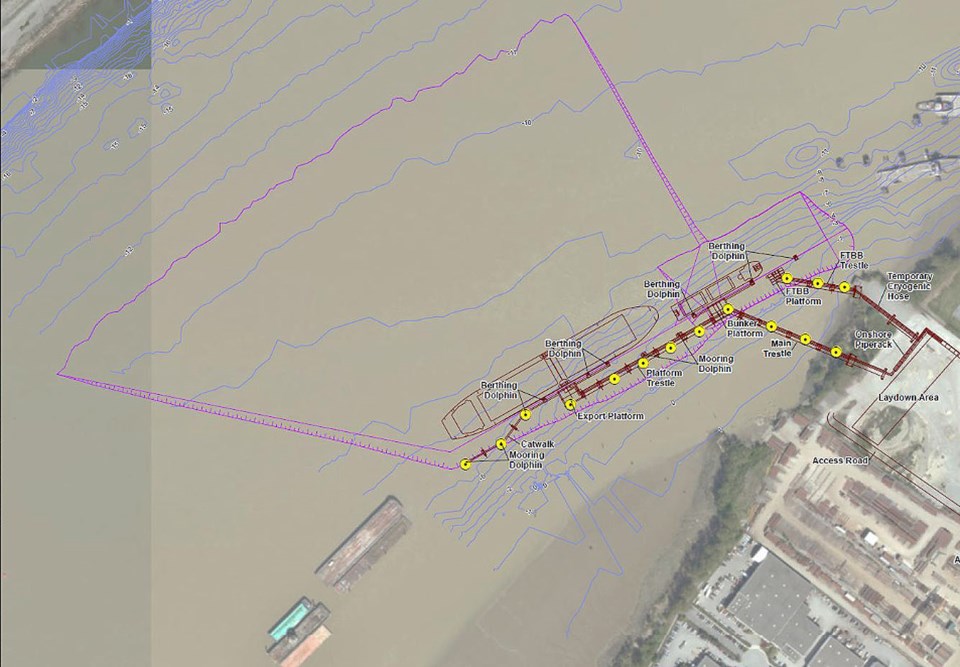Two environmental protection organizations, Ecojustice and Stand.earth, have expressed disappointment and concern in response to the federal government’s approval of the Tilbury Marine Jetty, a liquefied natural gas (LNG) project situated in Delta.
The federal government confirmed its approval July 3. An environmental-assessment certificate for the project was issued by the B.C. government in March.
Per an overview from the B.C. government’s Environmental Assessments website, the proposed jetty would transport “up to 4.83 billion cubic metres of natural gas per year” to marine barges and carriers for delivery to local fuel markets and offshore export markets.
Ecojustice and Stand.earth say approval of this project is in direct opposition to the provincial government’s emission reduction goals for 2030, and that the approval was issued without a full assessment of potential greenhouse gas emissions.
Additionally, the organizations stated in a joint press release, approval was granted despite Steven Guilbeault, Minister of Environment and Climate Change, acknowledging that the project would “have significant cumulative adverse effects on the highly endangered Southern Resident killer whale population.”
“This is a fracked gas project,” says Imalka Nilmalgoda, staff lawyer for Ecojustice, “so it will cause significant greenhouse gas emissions over its lifetime. It will cause upstream emissions during the production process, which impacts both air and water, and then there are impacts from the orphan wells that are left behind when fracking is completed.”
The federal government’s confirmation of approval automatically triggered a 30-day window in which its decision can be challenged. Consequently, Nilmalgoda says, she and her colleagues at Ecojustice and Stand.earth are currently “in the middle of assessing our options and what our next steps should be.”
Meanwhile, the project still needs to secure permits and approvals from various federal departments, including Fisheries and Oceans Canada, and Environment and Climate Change Canada.



